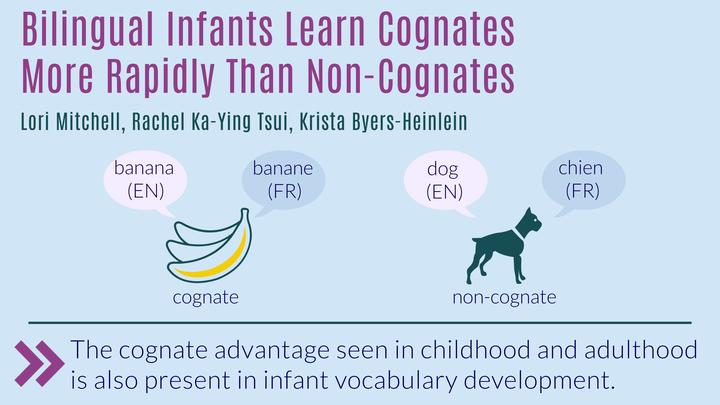
Abstract
Cognates are thought to have a special status in the bilingual adult lexicon, but are they also acquired more quickly in bilingual infant vocabulary development? This study collected CDI data longitudinally from French-English bilingual infants from 16 to 30 months. We compared the proportion of cognate translation equivalents (e.g., English “banana” and French “banane”) to the proportion of non-cognate translation equivalents (e.g. English “apple” and French “pomme”) that infants produced. Results showed that infants produced significantly more cognates than non-cognates, and that the cognate advantage strengthened across development. This finding held even when controlling for potential confounds between cognate and non-cognate vocabulary items such as normative age of acquisition. These results indicate that bilingual infants leverage phonological similarity in vocabulary acquisition. Consistent with previous findings, vocabulary development may be facilitated for bilingual infants learning phonologically close language pairs compared to infants learning more distant language pairs.